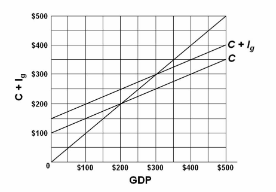In Spain, people are considered organ donors unless the explicitly indicate they do not want to be. In the United States, people are only considered organ donors if they explicitly indicate they wish to be. Behavioral economics would suggest that
A) everything else equal, the opt-in system of Spain would generate more organ donors as a percentage of the adult population.
B) everything else equal, the opt-in system of the United States would generate more organ donors as a percentage of the adult population.
C) everything else equal, the opt-out system of Spain would generate more organ donors as a percentage of the adult population.
D) everything else equal, the opt-out system of the United States would generate more organ donors as a percentage of the adult population.
A
You might also like to view...
One of the elements of monopolization is
A) having a superior product or having a superior business acumen.. B) the possession of monopoly power in the relevant market. C) when only one firm exists in an industry. D) having a significant pricing power due to an accident in the relevant market.
Refer to the diagram for a private closed economy. The equilibrium level of GDP is:

A. $400.
B. $300.
C. $200.
D. $100.